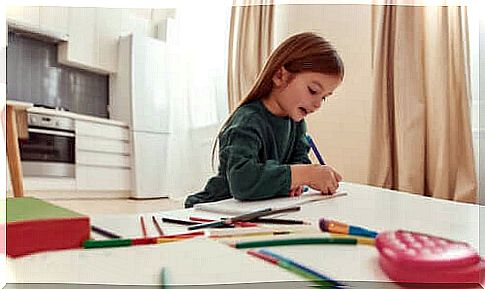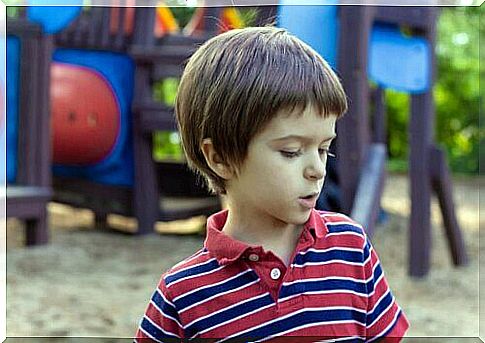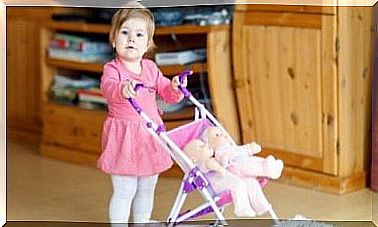Benefits Of Soliloquies: Children Talking To Themselves – Being Parents

Have you ever caught your child talking to himself, having an interesting conversation without focusing his attention on someone other than himself?
Perhaps these situations have left you perplexed and worried, especially if it happens frequently. But you should know that this is a completely natural phenomenon and that, in addition, soliloquies in children bring great benefits.
In fact, it is not just children who exhibit this behavior. Adults also talk to themselves with some frequency.
It is a strategy that we use to regulate our emotions or clarify our ideas. What is happening is that we do it to a much lesser degree than children. And this, simply because our stage of evolution is different from theirs. And, during childhood, soliloquies are really beneficial.

What are soliloquies in children?
Soliloquies are the conversations children have with themselves. It is therefore a form of private speech. This also happens on other occasions, such as when children repeat adults’ words or phrases. In these cases, there is no social intention. The goal is not to communicate, but it is still a useful strategy on several levels.
Soliloquies in children appear, for example, when speaking in front of a mirror. Or when they give voice to their toys and make them interact.
Many parents will also have seen how the little ones talk to each other when faced with a difficult task or not yet fully mastered. In this way, instructions are given out loud on the next steps to follow: “First, I add six plus six… that’s twelve, then, I put a two and I retain a…”
Far from being the sign of a psychological pathology, it is something common that can be observed in all children. But why are they doing it? What advantages does this bring them?
The benefits of soliloquy in children

Soliloquies improve language in children
Soliloquies improve language development. They allow children to practice their expression and communication skills. Although initially it may be a private speech, in the future this ability will be extrapolated to social conversations.
They allow you to better organize ideas
The development of language and thought are closely linked, since we all think through words. Thus, the way children learn to use their speech will allow them to think in a clearer and more organized way.
By speaking alone, they put their ideas in order and give them shape. Which they can then do mentally without having to use words out loud.
They regulate their emotions
Emotions can be overwhelming for children, especially negative ones. Soliloquies are therefore a good tool to manage and control them.
Thus, by expressing them aloud, they lose part of their emotional charge and the child experiences liberation. “Talking” and telling each other how angry or sad they are helps them deal with this feeling and get over it.
They direct their behavior
Finally, this type of private dialogue allows children to direct their behavior and solve problems more effectively. As in the previous addition example, it is common for children to recall out loud the steps they should take.
In this way, they also congratulate themselves when the result has been as expected. Or they look for another strategy if the previous one doesn’t work.
This guidance, which may come from an adult (a teacher, for example), is incorporated into their own soliloquies and applied when facing homework on their own.

Until when are the soliloquies positive?
This phenomenon is very common in young children and it is normal for it to occur frequently until the age of 7-10 years. Even though young children interact socially with other people, these two forms of speech coexist for a good period of time.
As they grow up, these soliloquies will decrease, because the children will be able to mentally maintain this monologue, without expressing it aloud. However, they will always be present in a certain proportion.
If you notice your child talking to himself, don’t be alarmed and try to stop him. It is a natural and beneficial process that will help him develop cognitively and emotionally.









